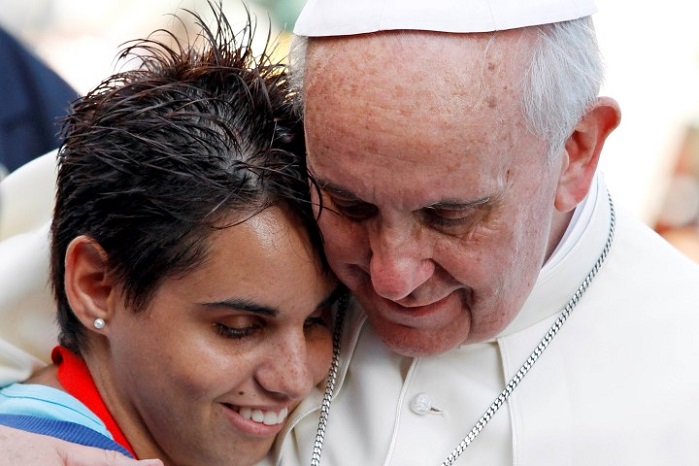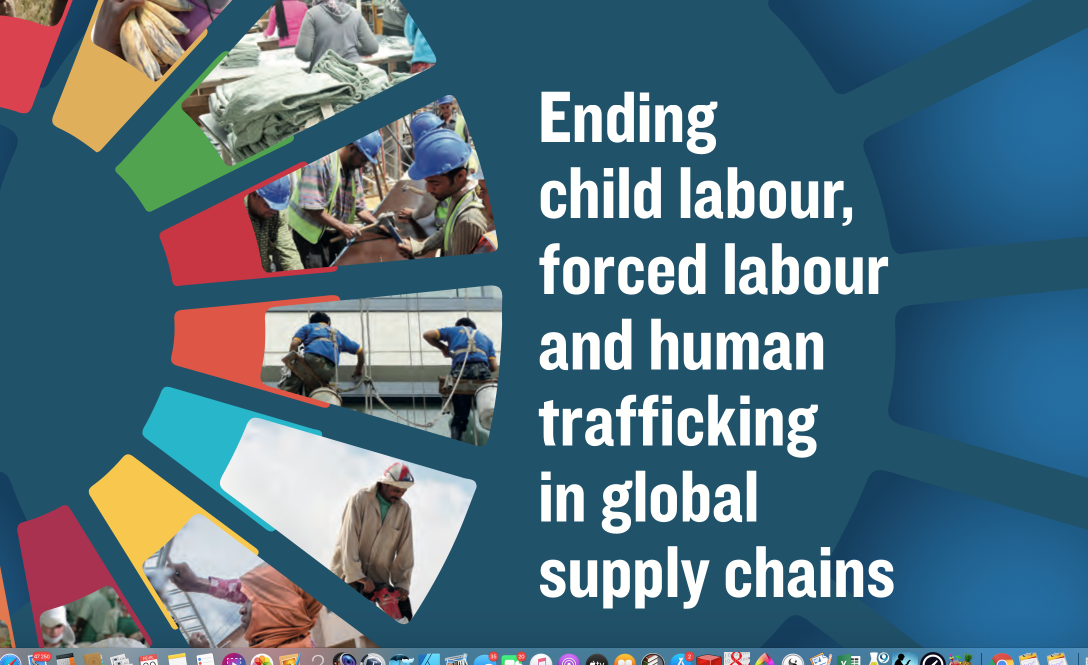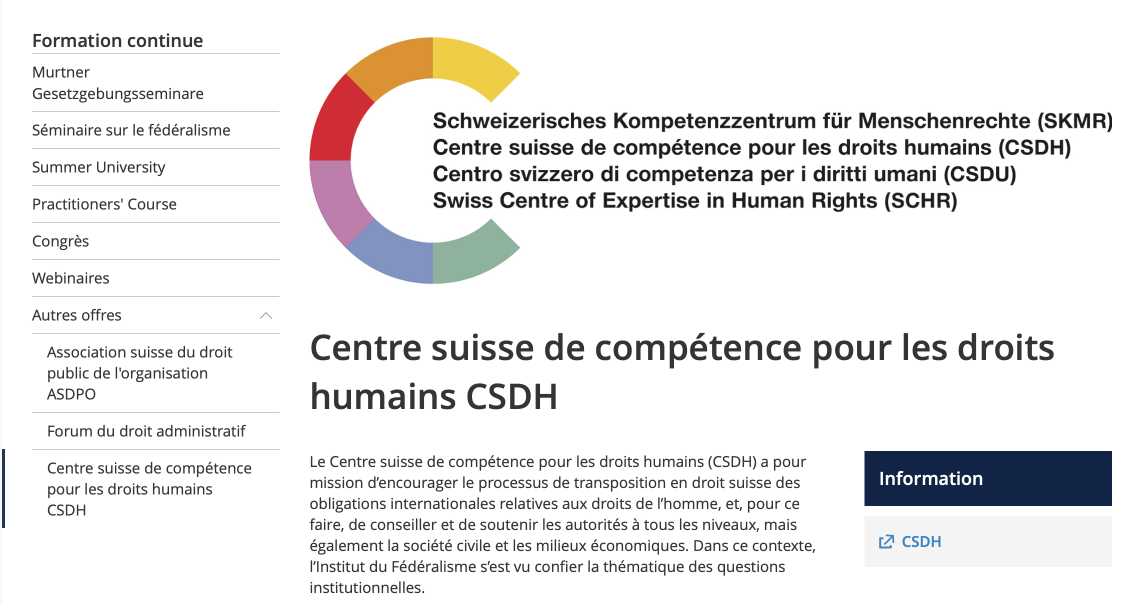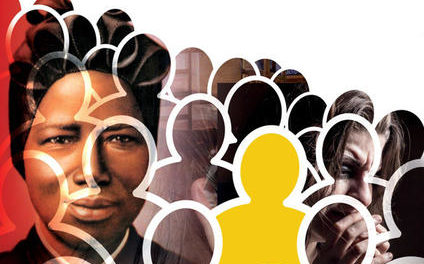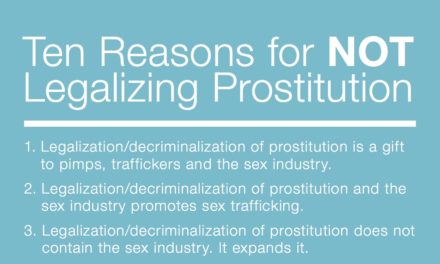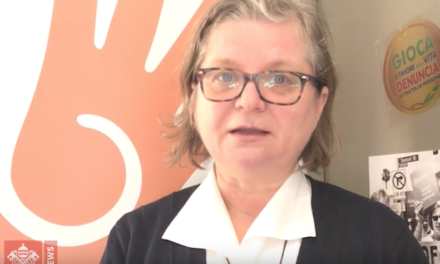 Loading…
Loading…
|
Pontifical Council for the Pastoral Care of the Migrants and Itinerant People
Iº INTERNATIONAL MEETING OF PASTORAL CARE FOR THE LIBERATION OF WOMENOF THE STREETROME, 20th – 21st JUNE 2005
FINAL DOCUMENT
THE EVENT The meeting was held at the Pontifical Council for the Pastoral Care of Migrants and Itinerant People in Rome. In addition to the superiors of the Pontifical Council, it was attended by five Dicastery officials; two Bishops; various priests, religious and lay people; delegates from the Bishops’ Conferences of nineteen European nations, namely Albania, Germany, Belgium, Bosnia-Herzegovina, the Czech Republic, Denmark (Nordic countries), Scotland, Slovenia, Spain, Estonia, Holland, Hungary, England, Ireland, Italy, Montenegro, Poland, Portugal and Switzerland; and delegates from other continents, including experts, namely from the Democratic Republic of Congo, India, Nigeria and Thailand. Also present were delegates from the USG (Union of Superiors General) and the IUSG (International Union of Superiors General); CELAM; the Pope John XXIII Communities’ Association; the Legion of Mary; representatives from other associations that carry out apostolic work in this area; and a representative from Caritas Internationalis. After a warm welcome, the President of the Pontifical Council, H.Em. Stephen Fumio Cardinal Hamao, opened the proceedings by highlighting the importance of this issue, which calls for the attention and pastoral care of the Universal Church and the particular Churches. Archbishop Agostino Marchetto, Secretary of the Dicastery, presented the theme and agenda of the meeting and also proposed some assessment criteria and pastoral courses of action regarding this issue. In his speech, entitled “Street women today, a pastoral challenge”, he highlighted a vast and important field of apostleship, which also requires new pastoral agents. He also referred with concern to human beings, many of whom live in a situation where their minimum personal rights are not respected, as their own bodies are the object of trading and trafficking in people. The subsequent speeches by participants at the meeting drew attention to various aspects of the current situation of the women of the street. The Church looks on them with compassion and a sense of Christian welcome, and proposes consideration of the underlying spiritual and theological values of a pastoral commitment that reveals God’s benevolence regarding them, as everyone is aware of the many tragedies that lie buried beneath such experience. This gives rise to particular concern regarding the dramatic increase in the number of women and girls who are sexually exploited, creating an urgent need for pastoral action in synergy that goes beyond existing praiseworthy and generous reception initiatives and the current difficulty of including such actions within existing ecclesial structures. Mrs. Mariette Grange, delegate of the International Catholic Migration Commission (ICMC), developed the theme entitled “People trafficking, with particular attention to women trafficked for prostitution”, while Professor Mario Pollo’s report, “Overall vision resulting from a Preparatory survey”, gave an overview of the situation, taken from replies to a questionnaire, which was previously sent out to all participants. The results indicate a certain lack of the more specifically pastoral aspect. Finally, Father Oreste Benzi, head of Pope John XXIII Communities’ Association, gave his opinions on the theme: “For a pastoral ministry of redemption and liberation”. Six experts took part in the round table: Sister Eugenia Bonetti, I.S.M.C., from IUSG; Father Ottavio Cantarello, SC, Director of the “Samuel” Community, proposed by the Italian Conference of Major Superiors; Ms. Síle Ní Chochlín, from the Council of the Legion of Mary; Sister Lalini Gunawardene, RGS; Sister Michelle Lopez, RGS, from the Fountain of Life Centre; and Doctor Paolo Ramonda, Vice-President of the Pope John XXIII Communities’ Association. This round table dealt with drawing up “guidelines for specific pastoral care”. At the end of this international meeting, which included exchange of news, pastoral opinions, experiences and in-depth investigations, interesting initiatives were considered and acknowledged, taking account of the diverse situations that exist in various countries. Reaffirming their intention to pursue the work concluded during these days, in a spirit of collaboration and with a degree of coordination, the participants examined tactics and strategies for the future, and methodologies and objectives, which are summarised in the following conclusions and recommendations. CONCLUSIONS Some key points 1. Prostitution is a form of modern day slavery It is important to recognize that sexual exploitation, prostitution and trafficking of human beings are all acts of violence against women and as such constitute an offence to the dignity of women and are a grave violation of basic human rights. The number of women of the street has increased dramatically throughout the world for a variety of complex economic, social and cultural reasons. In some cases the women involved have experienced pathological violence or sexual abuse since childhood. Others have been driven into prostitution in order to have sufficient means of living for themselves or their families. Some search for a father figure or a loving relationship with a man. Others are trying to pay off unreasonable debts. Some leave situations of poverty in their country of origin, believing that the job being offered overseas will change their lives. It is clear that the sexual exploitation of women that pervades the world’s social fabric is a consequence of many unjust systems. Many women of the street who are in prostitution in the so-called First World come from the Second, Third and Fourth Worlds. In Europe and elsewhere many of them have been trafficked from other countries to meet a growing consumer demand. However not all of those who have been trafficked are in prostitution and not all prostitutes have been trafficked. Human slavery is not new. The International Labour Organization (ILO) estimates that currently there are 12.3 million people enslaved in enforced and bonded labour and that about 2.4 million of these are victims of the trafficking “industry”, whose annual income is estimated at of US$ 10 billion. 2. The Link Between Migration, Human Rights and Trafficking The link between migration, human rights and trafficking has gradually been discovered, and broader forms of trafficking have been recognized and analysed (debt bondage, slavery, sexual or labour exploitation). The definition of trafficking used in the UN Protocol to Prevent and Suppress and Punish Trafficking in Persons Especially of Women and Children is the one commonly accepted. This Protocol, as well as the Council of Europe’s Convention on action against trafficking, sees it as a gross violation of human rights and an offence against the dignity of the human person. While those who migrate to meet economic needs and those smuggled or trafficked have many vulnerabilities in common, there are important differences between migration and human trafficking and smuggling. Macro development policies in fact often leave women in debt and unemployed. They migrate in order to live and to help their families/communities. In any case efforts to tackle trafficking and smuggling must not overlook the desire of women to migrate in order to improve their own lives and the ones of their families and children. 3. The Causes of Prostitution In order to develop an effective pastoral response – the aim of this international meeting – it is important to know the factors that push or pull women into prostitution, the strategies used by pimps and exploiters to keep them under their control, the patterns of movement from countries of origin to countries of destination and institutional resources for addressing needs. The international community and many NGOs throughout the world are increasingly seeking to tackle criminal activities and to protect trafficked persons. They have developed a wide variety of interventions with reference to prevention and rehabilitation. 4. Who is the victim? She is a human being, in many cases crying for help because selling her body on the street is not what she would choose to do voluntarily. She is torn apart, she is dead psychologically and spiritually. Each person has a different story, mainly one of violence, abuse, mistrust, low self esteem, fear, lack of opportunities. Each has experienced deep wounds that need to be healed. What are they looking for? They seek relationships, love, security, affection, affirmation, a better future for themselves and for their families. They want to escape from poverty and lack of opportunities and to build a future. 5. Who Is The “Client”? The “consumer“ has also deep-seated problems because he too, in a certain sense, is enslaved. A large number are over 40 years of age, but there is an increasing number of younger men between 16–24 involved. It is clear from research that men increasingly seek out prostitutes for reasons of domination rather than for sexual gratification. In social and personal relationships they experience a loss of power and of masculinity and are unable to develop relationships of mutuality and respect. They seek out prostitutes because it gives them an experience of total domination and control of a woman for a specific period of time. The “client” needs more than social condemnation and having to face the full rigours of the law. He must also be helped to face his deeper problems and to find other ways of dealing with his personal needs. Buying sex from a prostitute does not solve problems that arise from loneliness, frustration or a lack of true relationships. 6. Relationships Between Men and Women The relationship between men and women is unequal because violence or the threat of violence give men privilege and power and can make women silent and passive. Women and children are often pushed out onto the street because of the violence they experience from male members in the home who have internalized the violence embedded in ideologies and social structures. Sadly women also participate in oppression and violence towards other women, and they are often found within criminal networks connected with the growth of prostitution. Role of the Church 7. The Church has a pastoral responsibility to promote the human dignity of persons exploited through prostitution and to advocate for their liberation and economic, educational and formative support. The Church must take up the defence of the legitimate rights of women. 8. In addition to responding to the pastoral needs of the women of the street, the Church must prophetically denounce the injustices and violence perpetrated against women wherever and in whatever circumstances this may occur. The Church must invite also all men and women of good will to commit themselves to sustaining human dignity by putting an end to the sexual exploitation. 9. There is a need for renewed solidarity in the Church and among religious congregations, lay movements, institutions and associations in giving greater “visibility“ and attention to the pastoral care of women exploited by prostitution, without forgettingthe good news of full liberation in Jesus Christ. 10. In attending to the needs of women throughout the centuries, religious congregations of women especially have continually considered the signs of the times, discovering the validity and relevance of their charismas in many new social contexts. Today women religious worldwide through faithful reflection on the Word of God and the social doctrine of the Church seek new ways of giving prophetic witness to the dignity of women. They do this by offering a wide variety of services in outreach units, drop-in centres, shelters and safe houses, training and education programs to women of the streets. Members of contemplative orders show their solidarity, by providing support through prayer and, when possible, financial assistance. 11. Training programmes for pastoral agents are necessary to develop skills and strategies in order to tackle prostitution and trafficking. These are important ways of engaging priests, religious men and women and lay people in the prevention and reintegration of victims. Collaboration and communication among churches of origin and destination are seen to be essential. GENERAL PROPOSITIONS 12. Church action to liberate women of the street When tackling prostitution, a multi-dimensional approach is needed. It must involve both men and women in mutual transformation, and human rights must be at the core of any strategy. All Christians are called to be in solidarity with those trapped on the streets. In any case men have an important role to play in helping to achieve gender equality in a context of reciprocity and just differences. The exploiters (generally men) who are “clients”, traffickers, sex tourists, etc., need education in both the hierarchy of human values and in human rights. They also need to hear a clear condemnation of their evil and injustice by the Church if not by the State. 13. Role of the Episcopal Conferences The Episcopal Conferences in countries involved in prostitution as fruit of human trafficking must assume the responsibility of denouncing this social scourge. There is a also a need to promote respect, understanding, compassion and a non-judgmental attitude towards women who have been caught in prostitution. Priests and pastoral agents have also to be encouraged in facing this slavery pastorally. 14. Role of Religious congregations Religious congregations must draw on the strength of their convictions and join forces to inform, educate and act. They should emphasize values of mutual respect, healthy family relationships and community, together with the need for balance and harmony in interpersonal relationships among men and women. It is urgent that the various projects sponsored by religious congregations, which are aimed at assisting the repatriation and social reintegration of women who have been caught in prostitution, also receive adequate financial support. Meetings of religious associations working in different parts of the world to assist the women caught up in prostitution are recommended. The involvement and support of the clergy is also important, both for the formation of young people, especially of young males, and for the rehabilitation of the “consumers” of the sex trade, among other activities. 15. Collaboration a) Full collaboration among public and private agencies is required if sexual exploitation is to be obliterated. b) It is also necessary to collaborate with the mass media to ensure correct communication about this problem. c) The Church must demand the enforcement of laws protecting women against the scourge of prostitution and trafficking. It is also important to advocate for effective measures against the demeaning portrayal of women in advertising. d) The Christian community needs to be challenged to work with national and local authorities to help find alternative resources to live for the women of the street. 16. Dealing with the Victims and the “Clients” a) For the victims the healing process is long and difficult. Victims need to be helped to find a home, a family environment and a community in which they feel accepted and loved and where they can begin to rebuild their lives and their futures. This will enable them to regain their self-esteem and trust, their joy in living and to start a new life without feeling stigmatised. b) Liberation and reintegration require acceptance and understanding from the community. The healing process is helped through genuine love and by the provision of different opportunities that can help fulfil the deep desires of young women who are searching for security, affirmation and opportunities for a better life. The treasure of a faith (cfr Mt 6,21) which is alive, in spite of everything or rediscovered, will help immensely as well as awareness of the love of God, merciful and great in love. c) The “clients” need both information and formation with regard to gender, respect, dignity, inter-personal values and the whole area of relationships and sexuality. In a society where money and wealth are dominant values, appropriate relationships and sexuality education are necessary for the holistic formation of different groups of people. This type of education can explore the true nature of inter-personal relationships based not on egoistic interest or exploitation but on the dignity of a human person, who should be respected and appreciated as a God given gift. In this context, believers have to remember that sin is an offence also to God, to be avoided by all efforts, with the grace of the Lord. 17. Education and Research a) With attention to the target group it is important to approach the problems of prostitution, without neglecting the Christian vision of life, with youth groups in schools, parishes, and families in order to develop correct ideas about human relationships, gender, respect, dignity, human rights and sexuality. Of course formators and educators should take into account the cultural context in which they are working. However they should not allow a sense of embarrassment to prevent them from engaging in appropriate dialogue on these topics in order to create awareness and concern about the use and abuse of sex and love. b) The link between violence and “patriarchy” and the effect of both on women need to be explored and reflected on at every level of society, particularly in terms of their effects on family life. The practical implications of internalized violence need to be clearly named in the case of both men and women. c) The complex phenomenon of the feminine face of migration needs to be studied in a way that respects both women’s dignity and their rights. d) Education and awareness raising are vital in order to tackle gender injustice and create gender equality in a context of reciprocity and just differences. Both men and women need
e) Men in particular need initiatives that focus on
f) The Church needs to teach and spread its moral and social doctrine, which gives clear guidelines for behaviour and calls for a commitment to work for justice. Working at various levels for the liberation of women of the streets – at local, national and international levels is an act of true Christian discipleship, an expression of true, christian love (cfr 1 Cor 13,3). g) Developing the christian and social conscience of people through preaching the gospel of salvation, teaching and various formation initiatives is essential. h) Formation for seminarians, young religious men/women and priests is necessary so that they have the skills and attitudes necessary to work compassionately also with women trapped in prostitution and with their “clients.“ 18. Provision of Services (a) The Church can offer a wide variety of services to victims of prostitution: shelters, referrals, health care, telephone hotlines, legal assistance, counselling, vocational training, education, substance rehabilitation, advocacy and information campaigns, protection against threats, links with family, assistance for voluntary return and reintegration into their country of origin, assistance in obtaining a visa to remain when return is impossible. In any case the meeting with Jesus Christ, the good Samaritan and saviour, is a very important factor of liberation and redemption also for the victims of prostitution (cfr At 2, 21; 4,12; Mc 16, 16; Rm 10,9; Fil 2, 11; 1 Ts 1, 9–10). (b) Those who work directly with women who have been trafficked for prostitution need to be especially skilled in dealing with them in order not to place them in danger. © Reaching out to women and girls of the street is a complex and demanding enterprise. Prevention and awareness raising activities need to happen in countries of origin, transit and destination of trafficked women. Re-integration initiatives are important in countries of origin, if they return there. Advocacy and networking are also important. (d) The legal aspects of prostitution and trafficking – prohibition, regulation, abolition – must be attended to in every country. Examples of good practice should be shared (e.g. from Sweden). (e) Planned Church projects that are multi-dimensional would provide visible signs of diocesan or parish concern and commitment. FINAL RECOMMENDATIONS As far as Bishops are concerned 19. Include the topics of sexual exploitation, trafficking and smuggling of human beings in the ad limina visits. 20. Suggest that bishops encourage promotion and protection of the human dignity of women and minors in their pastoral letters. For local communities 21.There is a need for schools and parishes to provide education and awareness programs on sexuality, mutual respect and healthy interpersonal relationships, especially between men and women, in the light of the Word of God and of the moral teaching of the Church. 22. Formation and professional training programs for pastoral agents must become part of the preparation for their ministry. 23. Networks must be strengthened among all groups involved in the provision of pastoral care, e.g., volunteers, associations, religious congregations, NGOs and ecumenical and inter-religious groups. As far as religious congregations/diocesan clergy/national conferences of religious are concerned 24. Education and awareness programs regarding sexual exploitation of women and minors should be provided in seminaries and in initial and on-going formation programs of religious congregations, both of men and women. 25. National Conferences of Religious are encouraged to appoint a person to serve as a networking link within and beyond their country, in this pastoral sector. For the society in general 26. The sexual exploitation of women and minors is an issue for the entire society, not merely for women. 27. There is a need to focus attention on the “client” as an element of the consumer system underlying the sex trade. 28. It is important to use appropriate language and terminology when referring to the phenomena of sexual exploitation and prostitution. 29. Society has a responsibility to provide alternative resources to live for persons seeking to “leave the street”. |

